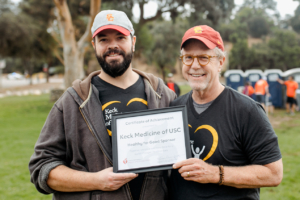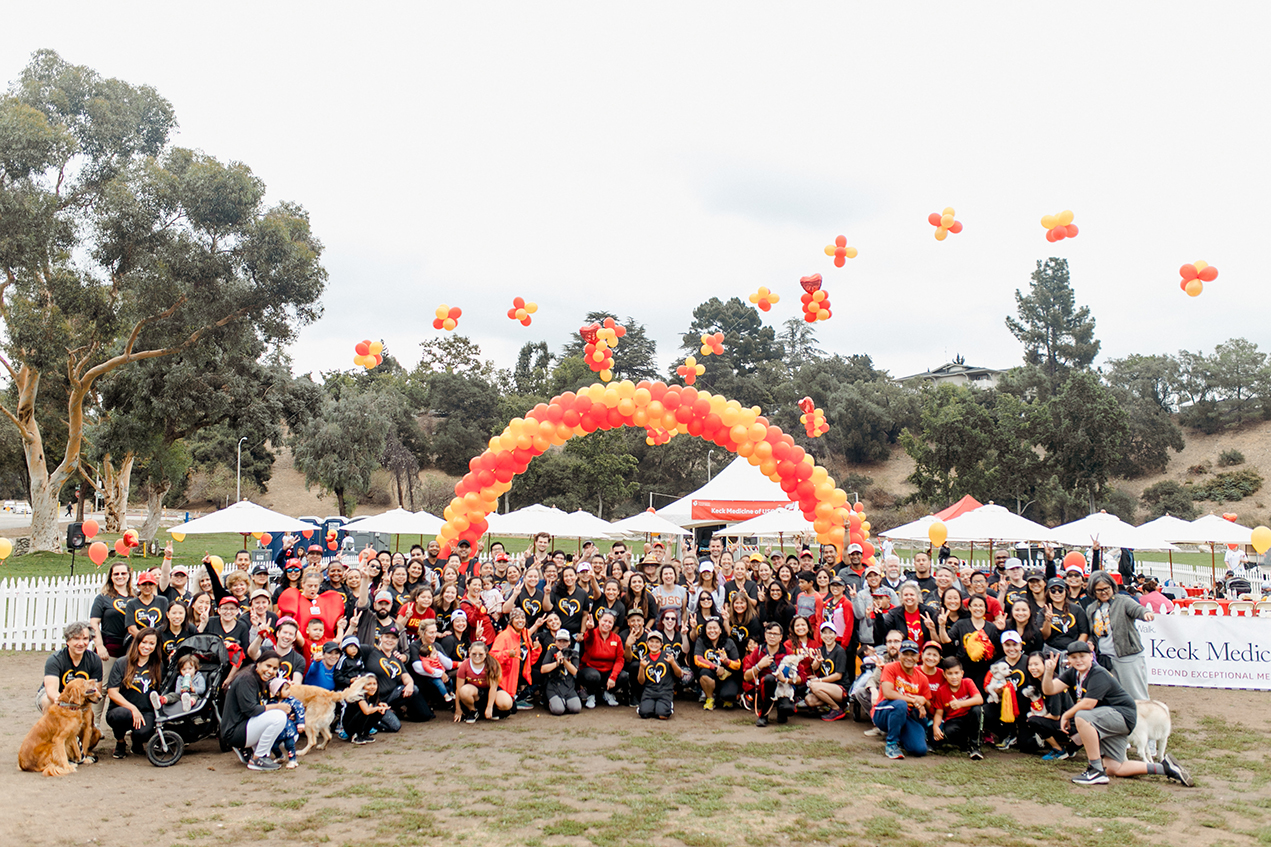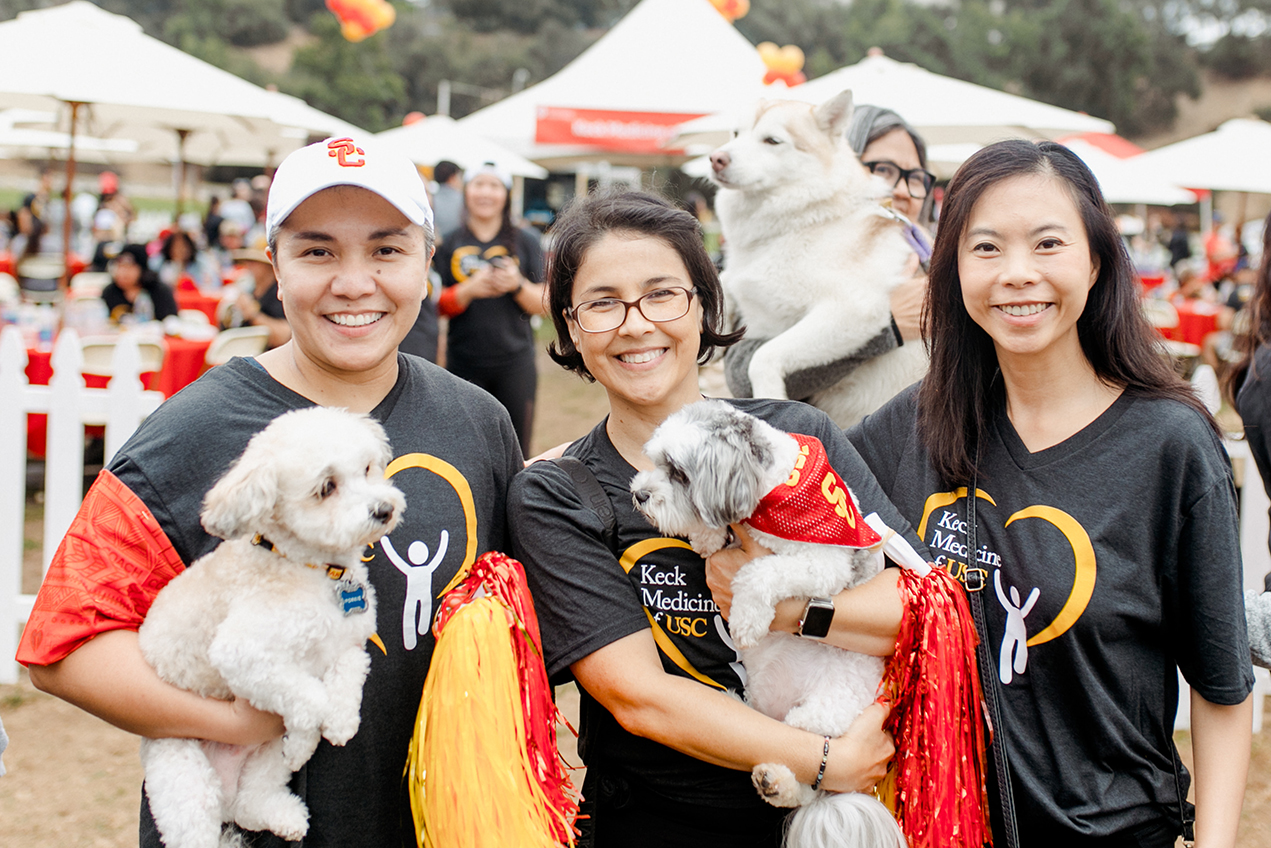Andrew Cha, RN, was tending to a patient in the 6 North unit at Keck Hospital of USC when his stroke occurred.
“Although I had felt some stiffness the night before, I didn’t know that I would become aphasic by the morning,” Cha said. “As I was assisting my patient, they noticed my gait was off and asked if I was alright. Soon, I found I was unable to speak and with the help of my coworkers was admitted into the hospital’s extended treatment center. There, I learned I had suffered a stroke.”
For the next three months, Cha underwent extensive rehabilitation treatment for his illness. Although he had the support of friends and family, the episode forced him to answer questions he never thought he would have to at his age.
“At the time, my emotions were running high and I was asking myself, ‘why me?’ ” he said. “I’m in the prime of my life, but now my voice is weak and my words are slurring. How am I going to continue life after this? Eventually, the incident motivated me to want to educate people about how stress contributes to stroke. The human experience is a one-time chance, and people need to know how to protect themselves.”
Cha’s desire to educate the public about healthy lifestyle choices was shared by more than 450 Keck Medicine of USC employees who participated in the American Heart Association’s (AHA) 2019 Los Angeles Heart and Stroke Walk that took place on Sept. 28 at the Pasadena Rose Bowl. This year marked the 26th anniversary of the walk, an event that has become instrumental in raising funds to fight heart disease and stroke. Since the first walk in 1993, mortality rates from cardiovascular conditions have plummeted by nearly 50%.

Christopher Jones and Paul Craig (Photo/Miguel Von Photography)
For the 2019 event, the Keck Medicine team raised more than $50,000, surpassing last year’s amount by $7,000.
“I feel the Heart Walk helps people who may not take these types of illnesses as seriously as they should,” said Martha Covarrubias, a heart-attack survivor and front office coordinator at Keck Medical Center of USC . “I want to be a part of the process of informing people and letting them know they need to adjust their lifestyle to prevent a major stroke or heart attack.”
Heart disease, stroke and other cardiovascular diseases claim the lives of more than 830,000 men, women and children every year. In Los Angeles County, heart disease and stroke account for more deaths than any other circumstance. Keck Medicine of USC has been especially attuned to this issue and has strived to create treatments and technologies to help extend and improve the lives of patients suffering from these conditions. Over the last 10 years, the AHA has funded 45 research projects with Keck Medicine, totaling $6,070,395.
“The money that we’ve raised at the Heart Walk over the years has helped create new technologies that save the lives of countless patients every day,” said Shawn Casey, senior vice president of the American Heart Association Los Angeles. “None of it would have been possible without the support of organizations like Keck Medicine. Not only has Keck Medicine been a wonderful partner in driving the engine of scientific discoveries that have impacted the health of many in Los Angeles, but they have also been instrumental in raising awareness and funds to support the AHA’s mission of building longer, healthier lives and ensuring equitable health for all.”
The AHA has funded $4.3 billion in research since 1949, second only to the federal government. These funds also support local programs to improve healthy food access, advocate for policies that impact cardiovascular health and help to bring health programs to communities in need.
“The Heart Walk not only makes a difference in the lives of our patients, but also energizes our staff and physicians. They really look forward to the event, it builds a great sense of comradery and community engagement,” said Paul Craig, chief administrative officer for Keck Medicine and chair of the board for the Los Angeles division of the American Heart Association and the American Stroke Association. “Ultimately, this initiative is a great way to engage and support our local communities and to raise funds for lifesaving science.”
— Matthew Vasiliauskas

The Keck Medicine of USC Heart Walk team raised more than $50,000 for the 2019 event. (Photo/Miguel Von Photography)


